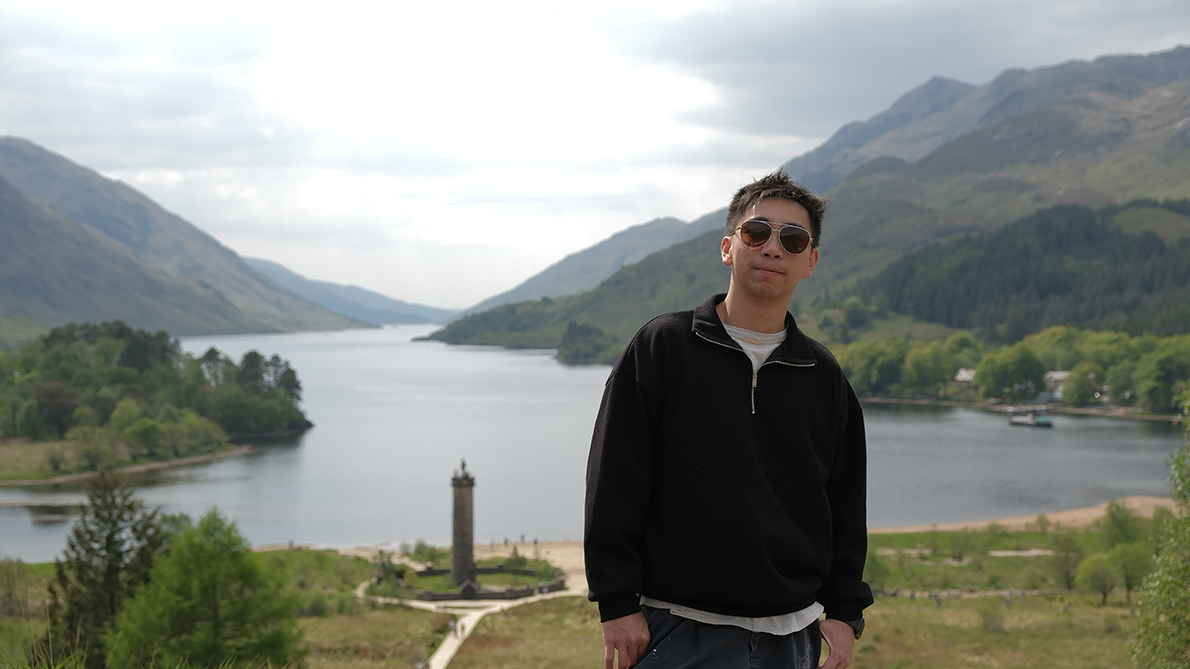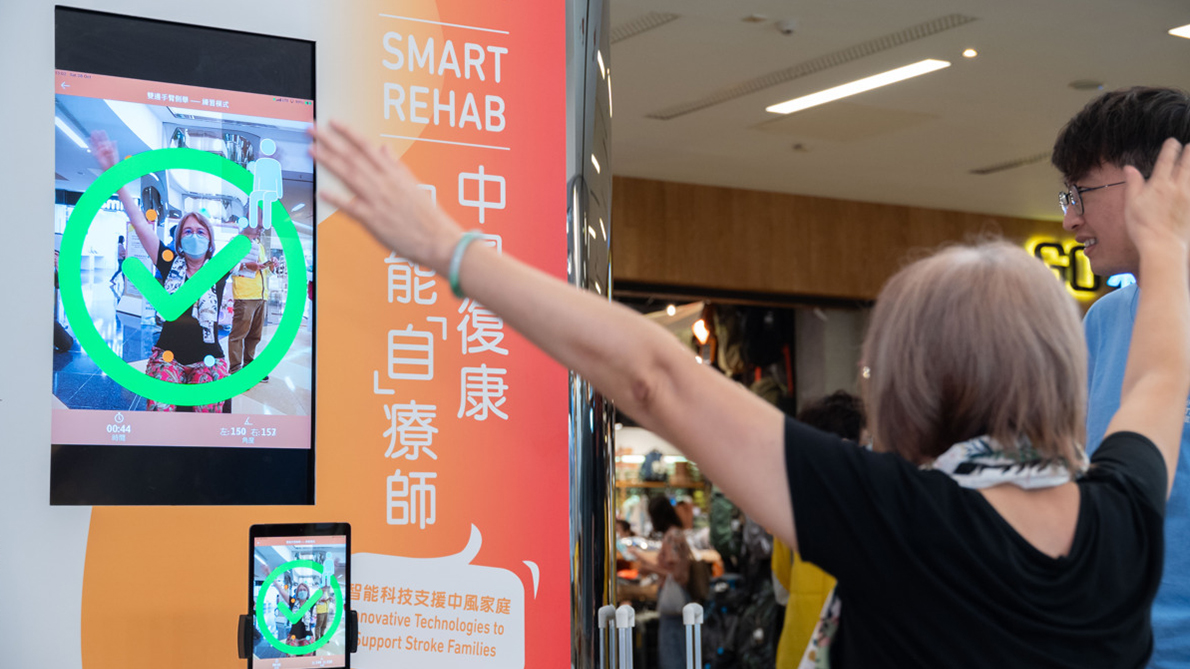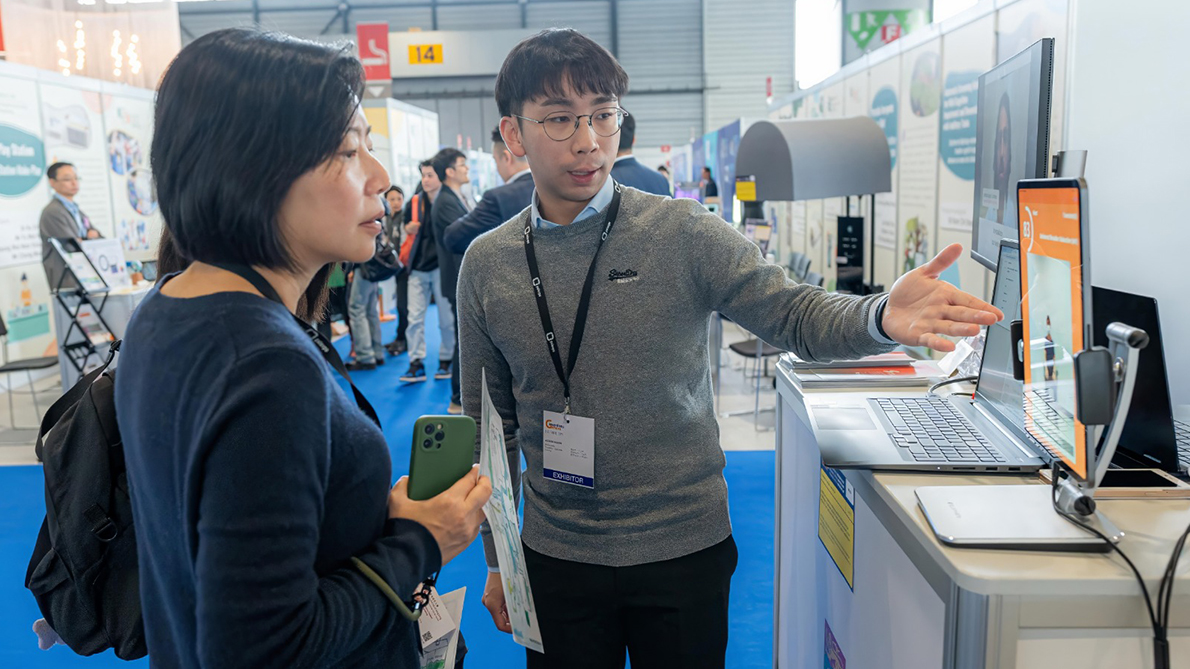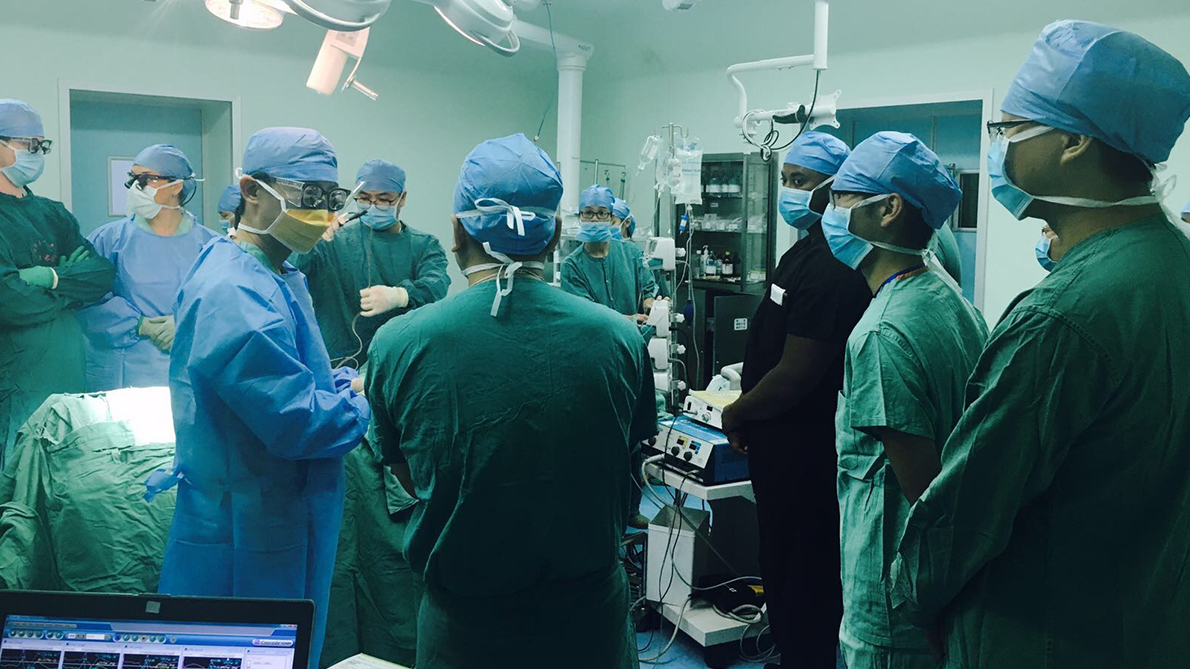AI-driven app bridges post-stroke rehab gap
Elton Yeung (ReMobility)
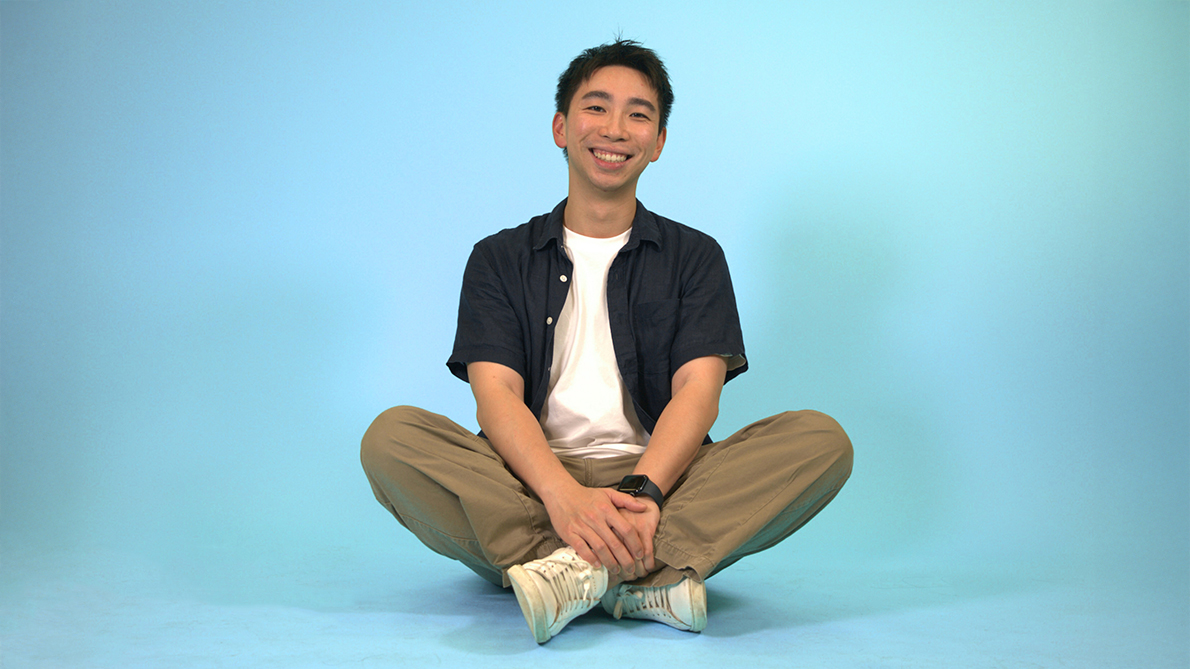
This is not your usual student-teacher relationship: the teacher isn’t the expert; the student doesn’t focus on grades; projects include experts from other disciplines: and sometimes, “everyone is a bit clueless!” That’s how Elton Yeung Hau Lam, an alumnus at HKUMed describes the dynamics within ReMobility, the start-up he co-founded to address areas in stroke rehabilitation that he felt could be improved. ReMobility brings together the expertise of experienced academics and the fresh outlook of enterprising students, all from different disciplines, and produces the AI-driven app, SmartRehab.
Elton’s academic journey began in Canada, where he studied neuroscience and human behaviour. “I was deeply interested in the real-world manifestations of neurological and psychological conditions,” he recalls. After completing a BSc degree at the University of Toronto in Canada and a Masters in Neuroscience at Imperial College London in the UK, medicine became the natural next step, offering him the opportunity to directly help individuals and families affected by these conditions. “My curiosity made me want to explore beyond laboratory-based research and delve into more patient-centred, clinical experiences,” he says.
“I chose HKU not only because my family and support network are based in Hong Kong, but also because I sensed a strong culture of support for mature students, research engagement, and scholarship opportunities,” he says. “These factors played a major role in my decision, and here I am – I’m grateful to say, it was the right choice.”
ReMobility began as an interdisciplinary collaboration between the Faculties of Medicine and Engineering, aimed at harnessing AI technologies to support stroke rehabilitation. Stroke is the second most common cause of death globally and a major cause of disability and institutionalisation. Rehabilitation is very important to the recovery of stroke patients in their mobility and for reducing limb function complications.
But stroke patients are often faced with practical, logistical and financial hurdles when trying to practise their rehabilitation training. The SmartRehab app was created to allow stroke survivors to train wherever they want, whenever they want, with computer vision-based pose estimation for analysing the accuracy of the patient’s motion. “The app acts as a mini AI therapist monitoring their exercises,” he explains. “It automatically and instantly analyses the data and uploads it to therapists so they can see remotely whether the patients have done their exercises and how they have done it.”
At the heart of the project was Elton’s interest in bridging medicine and engineering, or “providing perspective from a biomedical standpoint,” as he puts it. Along with Elton, the founding team included members from both the Medicine and Engineering faculties, including Professor Gary Lau (Medicine), Dr Wilton Fok (Engineering) and Ms Carol Chen (Engineering). “We began as a small-scale start-up led by a full-time physician, engineers, and myself – a medical student – united by a shared mission to create accessible and affordable rehabilitation technology,” he says. He believes the diverse set of skills and perspectives enabled them to drive the project forward.
HKU has been instrumental in their journey. “As someone without prior business or finance experience, I initially felt like a ‘headless fly’,” he laughs. He credits the Technology Transfer Office (TTO) and the Techno-Entrepreneurship Core (TEC) with providing vital support – from mentorship to pitching and funding opportunities – that helped them transform their research into a viable company. “We were fortunate to have had an amazing team. Dr Fok and Ms Chen brought invaluable start-up experience, and HKU’s support – especially from the TTO and TEC – guided us through the process.”
As with any start-up, there was a lot of hard work and not always smooth sailing. Fundraising was a vital activity, and Elton and the team would try to drum up support by emphasising the stroke rehabilitation journey – the challenges patients face after hospital discharge, including limited services, high costs, travel burdens, and caregiver stress.
“Of course, we faced setbacks – we failed to secure several grants early on,” he recollects. “In hindsight, each failure taught us something new, and we adapted as we went, trying various things to strengthen our engagement with our stakeholders. No two solutions were ever the same – and that’s what kept the process exciting!”
“Now we have an engineering team working on development and maintenance, a business team working on increasing the reach of our platform to more centres, and a research team on increasing the scientific support of our product,” he says. He is grateful to the Innovation and Technology Fund for Better Living (FBL), the Technology Start-up Support Scheme for Universities, the Hong Kong Science & Technology Parks Corporation Incubation Program, and the World Stroke Organization Future Leaders Program for entrusting and supporting them over the past several years.
“My long-term goal is to become a clinician-scientist – someone who bridges the gap between research and clinical care,” he says. He looks forward to seeing SmartRehab integrated into routine services and to applying the skills he’s built at ReMobility to help translate future research innovations from bench to bedside.
“In terms of rehabilitation, I’m also interested in neurology, especially brain damage, as that can be quite debilitating,” he notes. “I hope in the future I can work in that field to advance surgery techniques, and maybe use the experience I have working with AI and other industry experts to make a positive difference to the lives of those patients too.”

